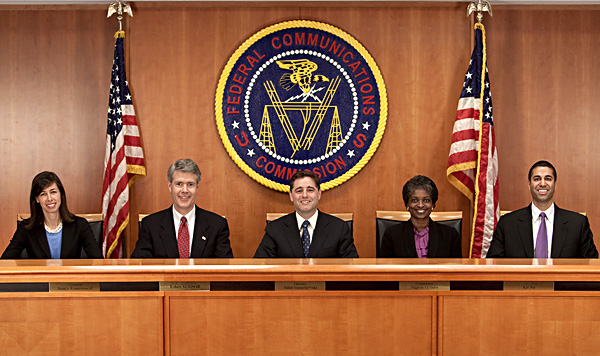I have far fewer concerns about Net Neutrality than I do about cable providers. We’re warned that innovation in the sector will be stymied now that throttling is illegal, but we seem to get electricity each day just fine. But even those who didn’t necessarily oppose the FCC’s decision can see some clouds in the commission’s bold call. Two such worried opinions follow.
____________________________
From Tim Harford at the FInancial Times:
This kind of product sabotage is far older than the internet itself. The French engineer and economist Jules Dupuit wrote back in 1849 that third-class railway carriages had no roofs, not to save money but to “prevent the passengers who can pay the second-class fare from travelling third class”. Throttling, 19th-century style.
But imagine that a law was introduced stipulating “railway neutrality” – that all passengers must be treated equally. That might not mean a better deal for poorer passengers. We might hope that everyone would ride in comfort at third-class prices, and that is not impossible. But a train company with a monopoly might prefer to operate only the first-class carriages at first-class prices. Poorer passengers would get no service at all. Product sabotage is infuriating but the alternative – a monopolist who screws every customer equally – is not necessarily preferable.
Fast lanes and slow lanes are a symptom of this market power but the underlying cause is much more important. The US needs more internet service providers, and the obvious way to get them is to force cable companies to unbundle the “last mile” and lease it to new entrants.
Alas, in the celebrated statement announcing a defence of net neutrality, the FCC also specifically ruled out taking that pro-competitive step. The share prices of cable companies? They went up.•
____________________________
From Alex Pareene at Gawker:
Don’t get me wrong. Regulating broadband as a utility is (in my opinion) the correct policy. This is as close as Washington gets to a victory for the forces of “good.” I would just urge everyone to keep in mind that the forces of good in this instance won not because millions of people made their voices heard, but because the economic interests of a few giant corporations aligned with the position of those millions of people. And I say that not simply to be a killjoy (though I do love being a killjoy), but because if anything is to change, we musn’t convince ourselves that actual victory for the masses is possible in this fundamentally broken system. Please don’t begin to believe that the American political establishment is anything but a corrupt puppet of oligarchy.
American politicians are responsive almost solely to the interests and desires of their rich constituents and interest groups that primarily represent big business. Casual observation of American politics over the last quarter-century or so should make that clear, but if you want supporting evidence, look to the research of Vanderbilt political scientist Larry Bartels, and Princeton’s Martin Gilens and Northwestern’s Benjamin Page. Gilen and Page’s conclusions are easily summed up: “economic elites and organized groups representing business interests have substantial independent impacts on U.S. government policy, while mass-based interest groups and average citizens have little or no independent influence.”
Political battles are won when the rich favor them. America’s rich have lately become rather progressive on certain social issues, and those issues have rather suddenly gone from political impossibilities to achievable dreams.•
Tags: Alex Pareene, Tim Harford

